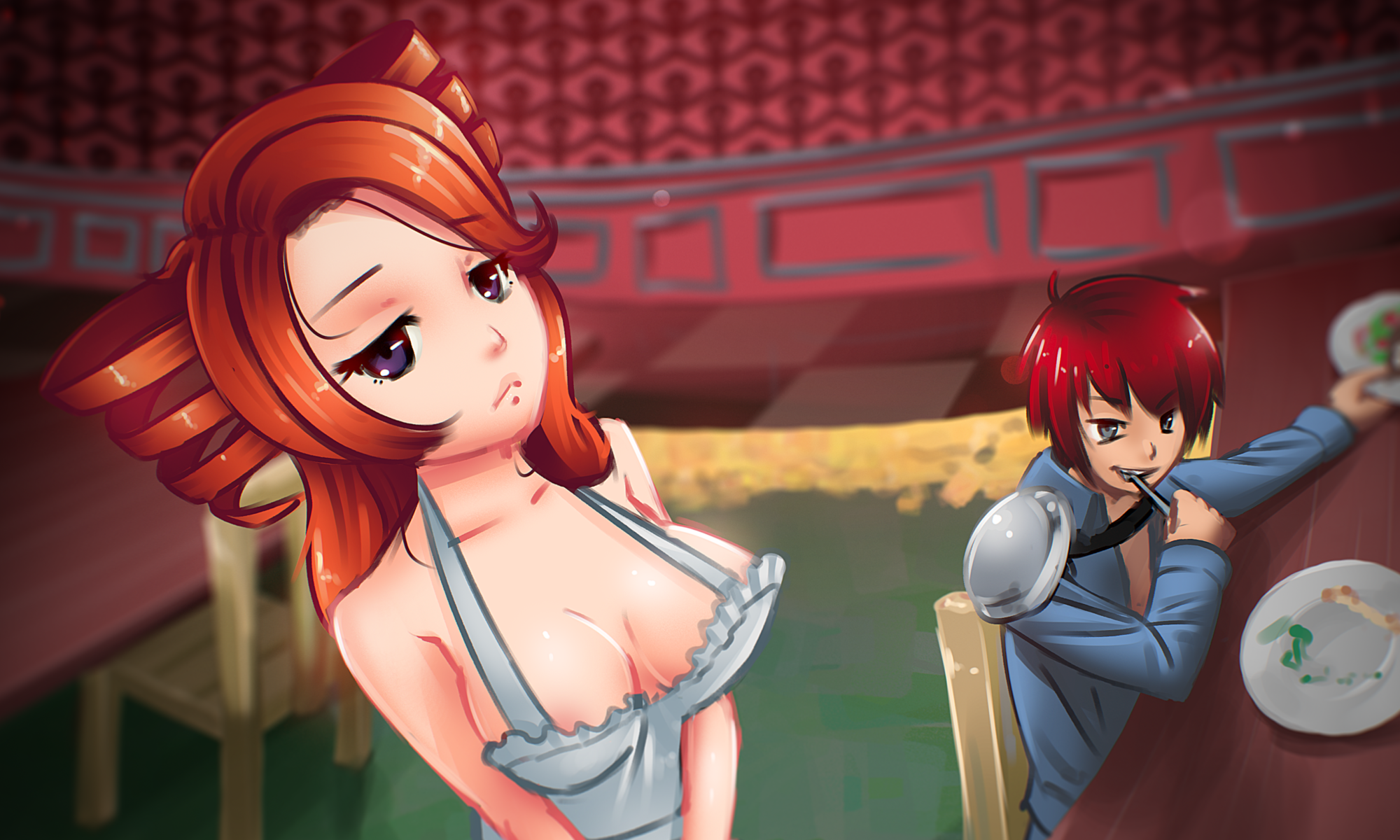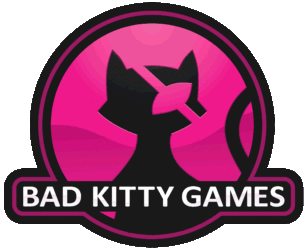Hey everyone, it’s Conash again giving you another blog post so that NoMoshing doesn’t have as much on his shoulders today, and oh boy has this development cycle not been kind to us. To start off with, we had a malware issue come up on our forums today so if you have have visited the forums in the past 48 hours it’s recommended you run a scan on your computer, then afterwards change your forum password just in case. Next, I am sorry to say but the new backer release will be delayed until Friday. We will continue working on it and bring a complete backer’s release to you all ASAP, but as of right now there are significant portions of the new content unfinished- too much for us to be comfortable making a release right now.
Now onto the actual topic for today, how game designers can manipulate players by using the dreaded magic known as math! Now, you may not have noticed it, but a lot of games are designed in a way to deliver various emotional experiences and can even sorta ‘convince’ you how you should behave. Sometimes this is more obvious than other times, for example when you’re playing HC and you get your first dual-element spell you’ll basically never use anything except it, because it does twice as much damage as anything that mage has, not only that it does both status effects, so of course you’re going to use Revelation instead of Crystal Rays! Now theoretically the MP cost may be a reason to avoid using it, but by the time you get access to it getting 2 actions at once is just so much more valuable than the additional MP you lose if they’re weak to radiant but only neutral to fire, this however is pretty obvious to anyone who plays HC.
Games however can get similar results in more subtle manners. Let’s take Sengoku Rance, since the official release came out recently. I have almost never used the option to increase my battlefield preparedness before a battle, on top of that I’ve read many guides, talked with many players, and at the end of the day I’ve never seen anyone recommend you do this over the course of a normal game, and when you break it down you can generally see why. First of all, in the game you are very limited in the number of actions you can make per turn, at the start you can only do 2 per turn, but you eventually get to 3-4 actions per turn, meanwhile you have to invest roughly 3-4 actions to capture any given territory assuming every attack you make is successful and the enemy never successfully defends. Meanwhile, you have a lot of other events going on, ranging from ranking up your troops, exploring dungeons, getting new sex scenes, recruiting new units, you name it, which you also have to balance with your war path and so taking the time to get an extra +10% battlefield preparedness for [b]one[/b] fight just doesn’t feel that good, you’re looking at spending 1 action to turn your next attack to be worth 1.1 attacks. I can, conversely, choose to scout before the fight, which usually has a lower check, and get +6% battlefield preparedness without using a separate action for it, and comparatively the return on investment just isn’t worth it. This creates a situation where if I could choose one of my units to get +1 more to their scouting or the max level of construction (9), I would choose the +1 to scouting every time, and despite encountering numerous play styles that I’ve seen and talked with people about I don’t know of a lot of people who wouldn’t value scouting at least twice as much as construction, because whether we realize it or not the game is designed in a way that additional points in scouting (which is needed for a couple of story events, on top of being a barrier that a lot of the best items in the game are hidden behind) will feel rewarding to players, while smart gameplay can render the construction stat useless.
So now that I’ve talked a lot about various examples as to how game mechanics can influence gameplay, and maybe you’re not quite sure about things, so let me work to get to my point of all of this. When it comes to designing a game you should keep this idea in mind as it is what some people would refer to as the ‘tactile feel’ or the ‘game feel’, because (while it can be hard to describe) they’re basically referring to how you feel good when you make a smart play (such as choosing the spell that does two spells at the same time) and how you feel bad when you realize you made an inefficient or detrimental play (ie, the battlefield preparation action). A lot of this stuff comes down to investments and pay-offs, if you invest time into something you want the game to say “You did good!” with progress towards something, when you invest thought into your armor choices you want to see you getting hurt less or not having to worry about status effects the ruined your run. Conversely though, you can discourage players from doing those actions by going in the reverse, which is a big way of how games that let you buy a premium currency work to get you to spend money. They use various methods to increase the time to earn the free money so that even if you do earn that one item you need to proceed, you’ll look back at all that time and energy investment and come to the conclusion that it wasn’t worth it deep down. It’s not something that I like, and I do my best to try to play around with this idea a lot in HC, I try to use enemy weaknesses and strengths to encourage players to use more effective strategies, or I’ll try to adjust the difficulty to feel if the testers come back and tell me that they have to invest so much time and effort into fighting the common enemies that the quest as a whole just causes too much stress. Granted, my enemies are still known to cause stress even after this, but based on the feedback I typically get it seems that players generally never feel that it’s unfair, which is a very important part of things.
You can even do this in more creative ways. An example would be in one of the new quests we’re adding in this release, because of what’s going on with the story I decided that I wanted to add in a boss that feels like you’re leading a siege, and if I didn’t get it into this quest then that’s one possible boss idea that I don’t think I’d be able to fit anywhere else into HC, so I sat down and tried to think what does a siege feel like. To me, I’d imagine that a siege is slow as they can take days, it’s also huge as the between the armies, the weaponry, and the target you’re looking at big attacks or lots of small attacks. Throwing in stuff like ladders to get up the wall, arrows, boiling oil, and battering rams would help add a lot in really setting the scene and help bring the scene to life! I spent a lot of time thinking how to work in elements like this, and eventually game to the conclusion that to do it perfectly I’d have to basically invent a second combat system (something akin to the various giant battles they eventually added in the Mario and Luigi saga) just for a single fight.
Now, we might get a bit bloated in scope and features, but even I have my limits on how off the rails I’ll get with development, so I decided to scale back and create a boss where it’d feel like you’re sorta breaking down the walls of a castle while it defends itself, so that means a very slow fight where the boss occasionally attacks but can do a lot of damage. Then after realizing that didn’t feel quite like a ‘boss’ in design, I managed to work in a few other things to be able to help make sure that the quest wouldn’t finish off with one giant slog of a fight that doesn’t feel rewarding at the end, including a way to get some support, like getting a battering ram that does good damage! I’m pretty happy with the results as I do think that boss will feel very unique, but conversely I’ve also given players the tools so that if they don’t want to deal with something that’s basically antithetical to engagement like that then they’ve got some options to undercut it while still feeling thematically appropriate. It’s kinda hard to really quantify how any given aspect of things ‘feel’, a lot of it just sorta comes down to figuring out how would things feel relative to you. One example from ‘Hell to Pay’, “So I want to make a boss that players actively want to avoid hurting what would I do? Well firstly they should be immune to traditional death, otherwise players with ‘enough’ damage will just kill them off. Next players need to be punished, so I’ll have they inflict increase as they take damage, and I’ll hide high-powered skills behind high momentum costs so if you hurt them a lot they’ll be able to hurt you a lot for a limited time period. Players aren’t psychic however, so we’ll need to make sure that they get the idea to use alternative methods on this boss somewhere… and well, I imagine most of you who have completed that quest can see a lot of what all went into that enemy. Now a lot of this stuff typically requires a firm understanding of how the combat works, what is effective and what’s not, so my time as a fan who used to min-max HC has helped me a lot in understanding how various systems fit together, but it’s been quite awhile since I’ve done that so I’m very reliant on both tester and player feedback in general to refine things. So yeah…
Haha, I guess that was a pretty big ramble. Hope that was at least semi-coherent to some of you, and useful in exploring the idea of what ‘game feel’ is, and how it influences player behavior. I’m probably not the best person to be able to explain it, but I know that when I see big numbers I’m happy, and even more so when I win. I know that when put a lot of time thinking up a complicated strategy, getting to pull it off and having it be successful makes me feel smart, and if when I go to face a boss that I’m left feeling like the game thought I was having too much fun and makes all enemies immune to my strategy two bosses later. Balance can be a hard thing to maintain, but sometimes it’s not about making something ‘balanced’ and more about making it feeling ‘rewarding’.

